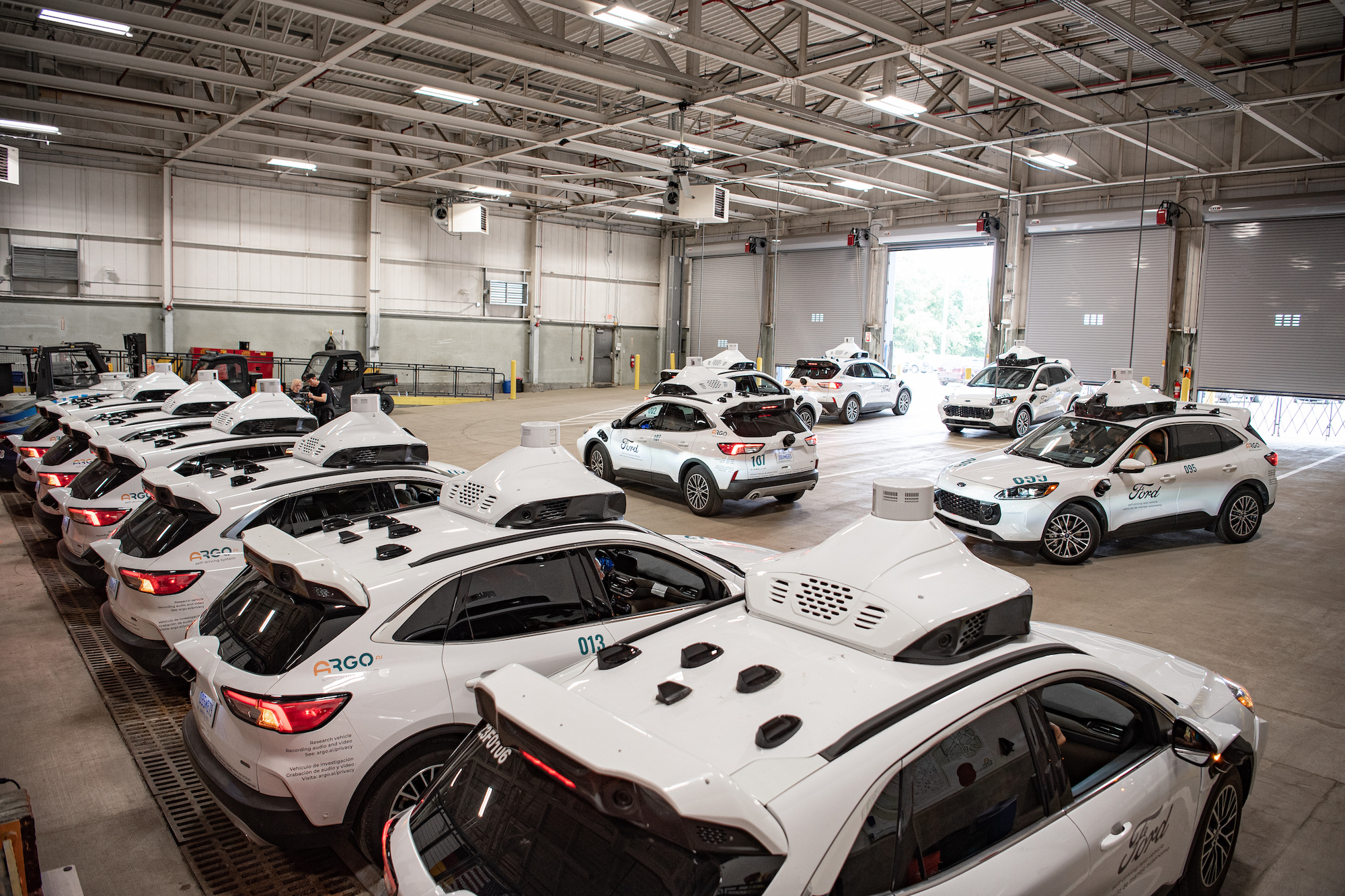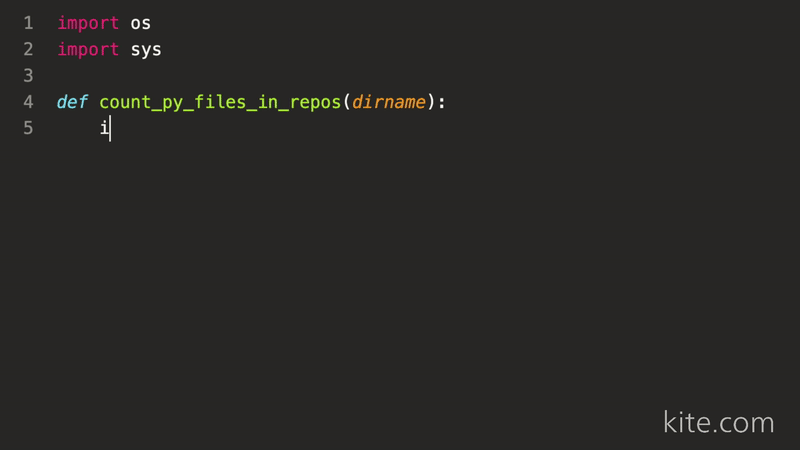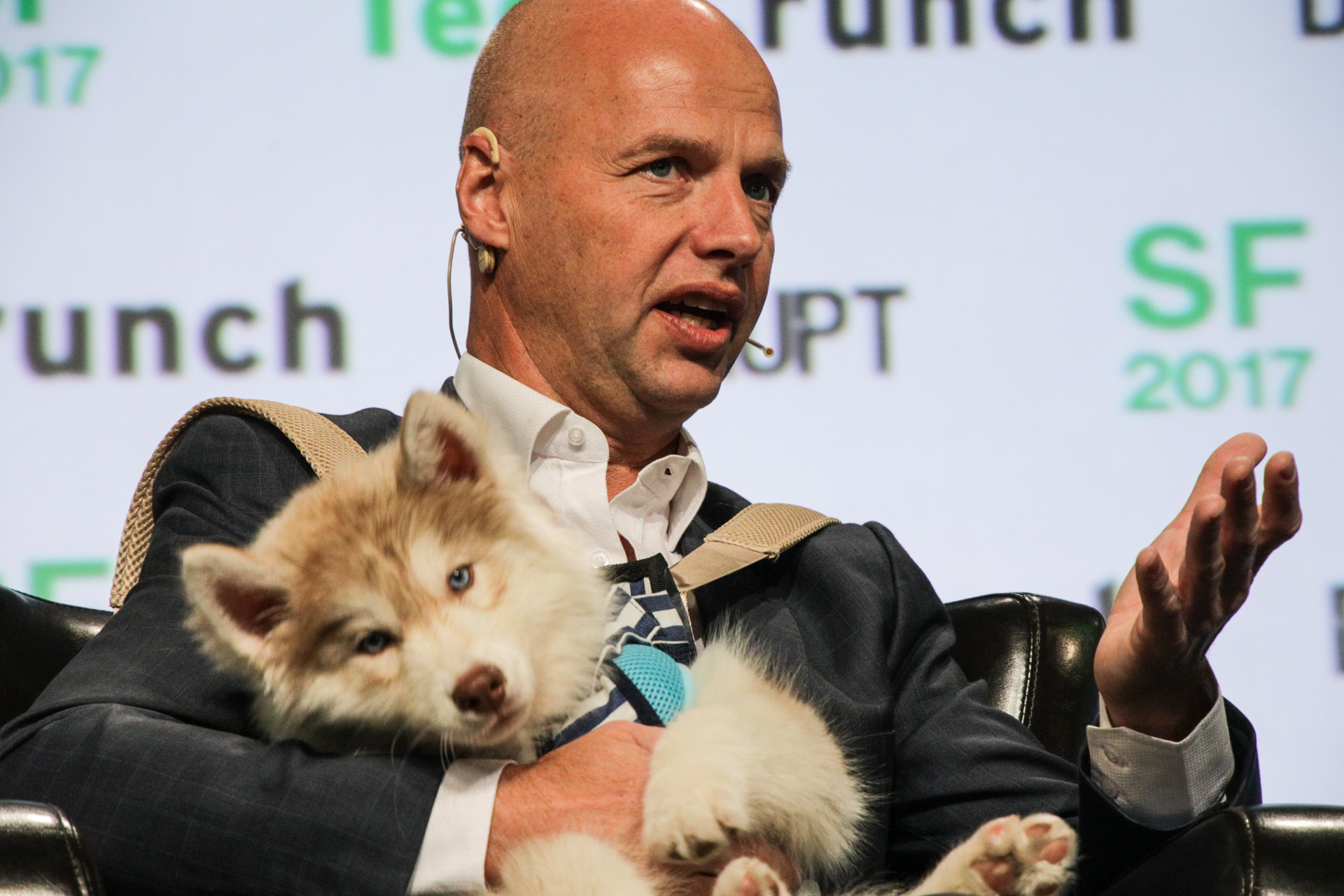It’s been a year. This roundup is never a particularly fun one to write. No one wants to see startups fail, but we’re all keenly aware that most ultimately do. A commonly cited figure suggest that 90% of these companies will ultimately fail. But even with that in mind, 2022 just hit different.
The previous two years were unprecedented in startup land, of course. Some startups blossomed and others struggled amid shutdowns and job losses. Then came the rise and fall of the SPAC wave and global supply issues. Now it’s the economy, stupid. According to figures from Crunchbase, Q3 venture capital dropped a mind-boggling 33% from last quarter and 53% from the same time last year.
The days of the $20 million seed round appear to be over — at least for now. It is, frankly, a bad time to be raising and, by extension, a bad time to be running an early-stage startup. Accordingly, this year saw a lot of startups pumping the brakes or pulling the plug. As such, this is by no means a comprehensive list. And with the continued spiral of the crypto firm, it seems we’re not out of the woods yet.
With all of that in mind, let’s take a look at some of the startups that didn’t make it.
Airlift
Airlift, once one of Pakistan’s most richly valued and funded startups, shut down in July due to lack of capital and an unsuccessful attempt to close a funding round. Before that, the commerce service platform raised $85 million in the country’s largest Series B funding, at a valuation of $275 million. The fall from those heights, thus, didn’t just impact employees and investors, but also general enthusiasm about the Pakistani tech ecosystem.
Argo AI

It wasn’t from lack of interest — or money. Argo AI had the support of two of the world’s largest carmakers: Volkswagen and Ford. Founded in 2016 by Google and Uber vets, the Pittsburgh-based firm managed to drum up $1 billion in funding over its half-dozen-year existence. Back in October, however, management dropped a bombshell during an all-hands: Argo was shutting down.
The technology and some employees would be absorbed into either Ford or VW, and the rest of its 2,000+ employees would be getting severance. Ultimately, it seems, the company failed to bring on new investors and drum up additional funds from existing backers. The dream of autonomous driving certainly isn’t going away any time soon, and both automakers want to get there, whether via in-house development or third-party acquisition. Unfortunately, however, Argo won’t be around to play a part.
Fast
Fast, a startup that provided online checkout products, announced in early April that it would shut down after days of chatter that its future was in doubt. Apparently, its 2021 revenue growth was modest — just six figures — and its cash burn was high, with no fundraising prospects in sight.
The company — founded by Domm Holland and Allison Barr Allen — was one of those that had plenty of hype around it, so its demise (especially after raising $124.5 million in three years) caused quite a ripple in the startup world. Notably, as it imploded, the company described itself as a “trailblazer,” saying that not all such parties make it to “the mountain top,” claiming that while it failed, the startup managed to “forever” change the world of online commerce. While the debacle paled in comparison to what would come later in the year when it came to overly confident leaders (ahem, see below), it was perhaps one of the earliest signs that all was not as rosy as it appeared in fintech land.
FTX

We debated on whether to include cryptocurrency exchange FTX as it technically has not shut down. But as one staffer pointed out, “We certainly lost it as the company it was.” The once-third-largest crypto exchange FTX on November 11 filed for bankruptcy in the U.S. and announced that CEO and founder Sam Bankman-Fried had resigned from his role. That news came days after a week-long collapse of the FTX empire as the company attempted to keep itself afloat, seeking acquisitions and fresh capital from market players. By December 12, Bankman-Fried had been arrested in the Bahamas. The next day, the U.S. Securities and Exchange Commission (SEC) had officially charged Bankman-Fried with defrauding investors.
The demise of the once-high-flying startup, which had raised nearly $2 billion in funding and once appeared to be flush with cash, no doubt marked a very low point for the crypto space. For now, Enron turnaround veteran John J. Ray III is serving as FTX’s new CEO, reportedly making $1,300 an hour.
Other crypto companies that also filed for bankruptcy this year but also technically did not shut down include Celsius and BlockFi.
Haus

Haus, a direct-to-consumer aperitif business backed by the likes of Casey Neistat, Homebrew Ventures and Coatue, shuttered earlier this year. What was surprising was that Haus announced this shift after it crossed the $10 million in revenue threshold and announced that it would be hitting national distribution with Winebow — two markers of growth.
Instead, the company’s eventual demise was triggered by an investor kerfuffle. Haus CEO and co-founder Helena Hambrecht said that Constellation committed to leading the startup’s $10 million Series A, and even offered to advance the startup money as runway began to dwindle. Then, last minute, Constellation backed out of the deal without any specific reasoning other than “timing,” she says.
The co-founder said “there’s no villain” in the shutdown story, yet Constellation’s dropout shows another example of how difficult it is to be a venture-backed, direct-to-consumer company.
Insteon
Proving that home automation can be a tough nut to crack, Insteon abruptly shut down in mid-April 2022, turning off its cloud servers without giving customers any warning. Launched by startup SmartLabs in 2005, Insteon at one point had an agreement with Microsoft to sell its kits at Microsoft Store locations and was one of the two launch partners for Apple’s HomeKit platform, with the HomeKit-enabled Insteon Hub Pro.
Insteon for the first few days didn’t respond to questions about the shutdown and its CEO, Rob Lilleness, deleted his LinkedIn account. Subsequently, however, the company updated its website with a statement that blamed the sudden liquidation on pandemic and supply chain problems. Apparently — if the unattributed statement is to be believed, at least — the goal was to find a parent for Insteon. But while a sale was expected in March, the plans ultimately fell through.
Insteon’s proprietary protocol likely didn’t do it any favors. More widely compatible technologies like Zigbee, Z-Wave and Matter are licensable and widely adopted, giving Insteon little in the way of leverage.
Kite

Kite, a startup developing an AI-powered coding assistant, shut down in November despite securing tens of millions of dollars in venture capital backing. Kite struggled to pay the bills, founder Adam Smith revealed in a postmortem blog post, running into engineering headwinds that made finding a product-market fit essentially impossible.
“We failed to deliver our vision of AI-assisted programming because we were 10+ years too early to market, i.e., the tech is not ready yet,” Smith said. “Our product did not monetize, and it took too long to figure that out.”
Kite’s failure doesn’t necessarily bode well for the other companies pursuing — and attempting to commercialize — generative AI for coding. Smith estimated that it could cost over $100 million to build a “production-quality” tool capable of synthesizing code reliably. That said, Kite’s rivals, including GitHub, Tabnine and DeepCode, believe it’s premature to become bearish on the market.
Kitty Hawk

Kitty Hawk had understandably high hopes when it launched in 2010. Founded by and piloted by self-driving car pioneer Sebastian Thrun, the eVTOL maker had some prominent backers, including, most notably, Google co-founder, Larry Page. In September, the startup announced its closure courtesy of a curt tweet, noting, “We have made the decision to wind down Kittyhawk. We’re still working on the details of what’s next.”
What comes next still isn’t entirely clear. Plenty of folks remain bullish on the eVTOL category, but Kitty Hawk couldn’t stick the landing. After flying 111 of its crafts a total of 25,000 flights, the firm shuttered that specific program, ultimately resulting in 70 layoffs. Further progress was made, “by 2022, however, the mission was less clear,” as Kirsten notes in her news report. A commercial air taxi was apparently still in the works by the time the company began winding down operations in September.
Modsy

In late June, Modsy, on online interior design services startup, abruptly ceased offering design services, laid off its designers and left customers with unfinished renovations and project orders in process. By July, Modsy had shut down entirely — a surprising turn of events for a startup that raised $72.7 million from investors including Comcast Ventures and NBCUniversal. So what went wrong?
Modsy took a major bottom-line hit on the logistics side during the pandemic as global supply chains ground to a halt. Amanda Kwan-Rosenbush, the former senior director of finance and accounting at Modsy, described shipping as a “significant cost” and said that Modsy’s furniture and décor partners often struggled with long delays.
But the e-design platform space is a tough nut to crack. Rivals like Laurel & Wolf and Homepolish shuttered in 2019, while Décor Aid, a smaller company, closed up shop in 2021.
Modsy made a series of aggressive cuts two years prior to its shutdown, slashing designer pay and reducing both salaried employees and its network of designers. Business of Home’s reporting revealed that the startup — in addition to piloting its own furniture line — at one point experimented with outsourcing design work to the Philippines and Bulgaria as a way to reduce operating expenses. But the pivots weren’t enough in the end to prevent Modsy’s demise.
NopeaRide
NopeaRide, Kenya’s first fully electric vehicle service, shut down in November after scaling to 70 vehicles and building a charging network all across Nairobi. It closed after parent company EkoRent Oy was unable to raise additional funding.
The closure came after the startup raised an undisclosed amount of funding since its 2018 launch. It was seeking to build more solar charging hubs in Nairobi and expand the radius in which it operated within.
Onward Mobility

Some startup failures are unexpected from the outside. Others you can see coming from a mile away. In spite of once sharing a blog post titled, “Contrary to popular belief, we are not dead,” Onward Mobility wasn’t fooling anyone. The Austin-based firm entered the mobile scene with an already risky proposition: bringing the BlackBerry back once again. The titular firm behind the original line struggled for years and TCL’s revival didn’t last particularly long.
Onward promised things would be different this time. It announced its intentions to the world, fell completely silent for some time and less than two years later, admitted that rumors of its death were no longer greatly exaggerated. That news arrived approximately one month after the company was publicly insisting otherwise. It’s frankly extremely hard to launch a brand new company even when there isn’t a global pandemic. And it seems like a fairly safe bet that, 15 years after the first iPhone turned the market upside down, there just isn’t enough of an appetite in the U.S. to serve as the foundation of a brand new phone maker.
Reali
Real estate fintech startup Reali began its shutdown in August in a surprise move, considering it had just raised $100 million one year prior. After a boom in home buying, the real estate tech sector found itself struggling as inflation and mortgage interest rates climbed, leading to a major slowdown in the housing market.
Even as it was winding down, Reali described itself as “one of the pioneering companies to offer the ‘buy before you sell’ and ‘cash offer’ programs to homeowners.” It seems that even being a pioneer doesn’t guarantee success and the news left us — and our readers — wondering how companies can burn through so much cash, so fast.
ShopX

India-based ShopX filed for bankruptcy in August after failing to generate enough cash flow and running into challenges raising capital. The startup, which provided software to connect brands, retailers and in-person shoppers, had raised over $66 million in funding from Fung Group, NB Ventures and others, and was last valued at about $175 million.
ShopX competed mainly with business-to-business vendors such as 1K Kirana Bazaar and SuperK but ventured into the business-to-consumer space in 2021, offering incentives — including cash back and cash-saving offers — to customers while they browsed their neighborhood kirana shops. (In India, “kirana” are small independently owned shops that make up a major part of India’s physical retail economy.) ShopX also rewarded purchases on select bike and car-related services, salon visits, grocery, medicines and more.
Udayy

Edtech has had a rough year. That rings especially true for Udayy, which shut down after raising millions from investors, reported the Economic Times. The Indian edtech sold live learning courses to kids, a use case that isn’t as bright as it used to be. As Natasha has said in the past, we now know that the startups that most enjoyed a pandemic-era boom are now the same startups facing difficult questions about how to navigate a not-so-looming downturn. The same venture capital rounds that allowed companies to expand their idea of what a total addressable market could look like, are the same tranches that may have forced an overspending and overhiring spree that now requires a correction.





























Comment